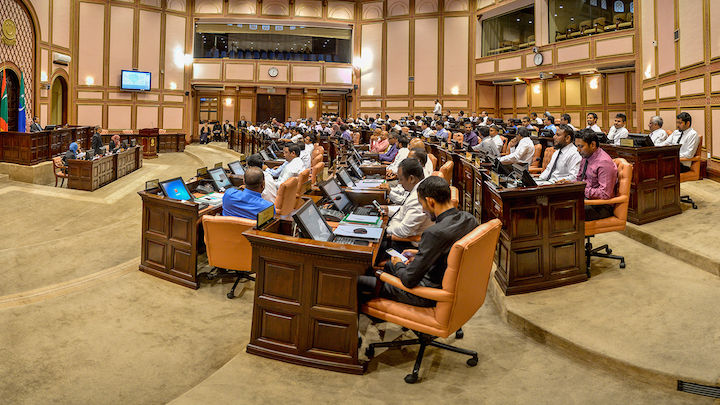Government authorised to lease islands without bidding
The ruling party-controlled parliament voted through today controversial changes to the tourism law that authorises the government to lease islands for resort development without a competitive bidding process.

29 Jun 2016, 09:00
The ruling party-controlled parliament voted through today controversial changes to the tourism law authorising the government to lease islands for resort development without a competitive bidding process.
The bill was passed 45-19 with MPs of the ruling Progressive Party of Maldives backing the government-sponsored amendments in defiance of an appeal by former President Maumoon Abdul Gayoom.
However, the PPM leader’s son, MP Faris Maumoon, broke ranks and voted against the bill. It is unclear whether he breached the party’s whip line.
Become a member
Get full access to our archive and personalise your experience.
Already a member?
Discussion
No comments yet. Be the first to share your thoughts!
No comments yet. Be the first to join the conversation!
Join the Conversation
Sign in to share your thoughts under an alias and take part in the discussion. Independent journalism thrives on open, respectful debate — your voice matters.




